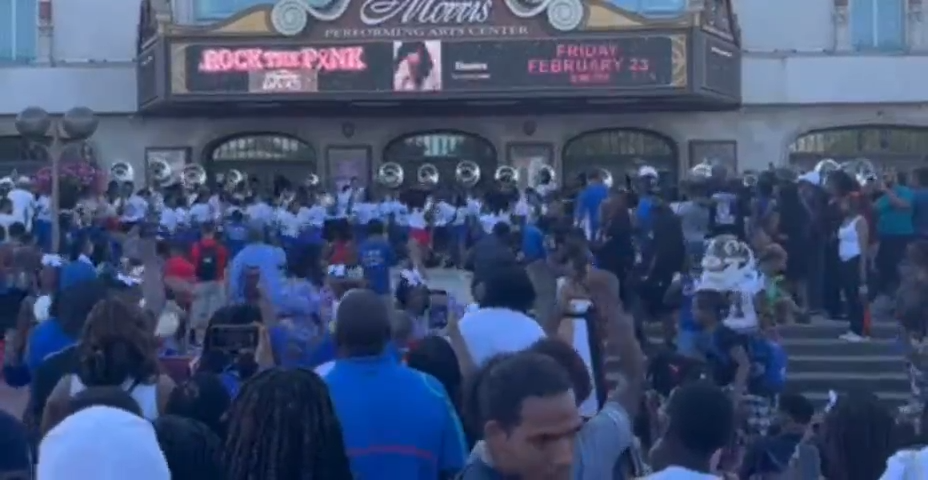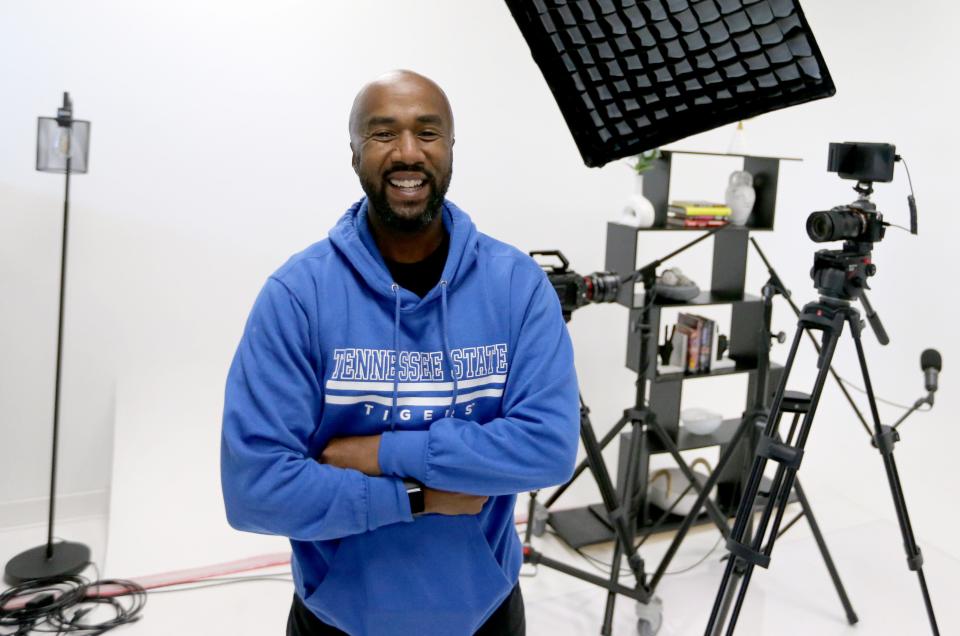Viewpoint: When my HBCU alma mater came to play ND, I saw a chance for a cultural exchange
Until I went on an HBCU college tour as a junior in high school in Buchanan I had no idea what those four letters meant.
The TV show “A Different World” painted a vivid picture of the historically Black colleges and universities experience, but I had no idea that colleges like Hillman existed in real life. Sitcoms like “The Cosby Show” and “Martin” also paid homage to HBCUs by having the main characters wear HBCU apparel, but having zero knowledge of HBCUs, I thought they were just wearing cool clothes.
Going on the college tour opened my eyes to why HBCUs were created in the first place, which was was because African Americans weren’t allowed to get an education at schools like the University of Notre Dame. I learned that despite HBCUs being underfunded, HBCU graduates still have made tremendous contributions to society.

I learned that institutions like Morehouse College produced graduates like Martin Luther King and Spike Lee. I learned that Tennessee State University was the college of choice to people like Olympian Wilma Rudolph, billionaire Oprah Winfrey and Jesse Russell, who holds the patent for the mobile data phone.
As I walked around these campuses it was eye-opening to see that there were students who dressed like me, spoke like me and looked like me but were motivated to be engineers, scientists and agriculturists. I saw Black professors, doctors and presidents of universities, which was way different from what I was used to in Buchanan, where I had only one African American teacher from K-12. From the moment I stepped on these campuses I was greeted with smiles, high fives and even hugs from people who never met me.
After enrolling at TSU I had professors pull me to the side to show me how to interview for jobs, who would call me when I didn’t show up to class, who would bring Vitamin C and chicken noodle soup when the seasons changed to fight off colds. I even had work-study administrators like Mrs. Scott and Miss Evans who would call my mother when I was dating someone who they didn’t feel like was “collegiate” enough for me to date. Their love and nurturing continues to this day as they call in some 25 years later to check on “the fam.”
The camaraderie that the HBCU experience builds is one that can be seen in an airport when someone from across the terminal sees your TSU shirt and yells out “Big Blue!” It can be felt when the friends you made in college become more like family in adulthood who travel across the globe to attend glorious events like a wedding, a childbirth or sad occasions like a funeral.
So when the University of Notre Dame announced they were playing my beloved TSU in South Bend, I immediately thought, "How could I create a culture exchange between the two communities?" One community where I still get racially profiled when I show up to film a project in my professional role or where African American patrons are told they all have to be on one bill despite the fact they don’t know each other.
And one community that embraces all members of the community regardless of socioeconomic status or race. In fact, many people who haven’t been exposed to HBCUs before don’t know that non-black students can go to HBCUs in a lot of cases for free or at very discounted prices. Sadly most of those students would never choose to put themselves in a role where they are the minority whereas African Americans often don’t have a choice in accepting that role.
To me this football game was the perfect opportunity to increase awareness of HBCUs, show that success has different faces and create a conversation that continues way after the final score is determined. This is why we brought in panelists who are executives at places like L’Oréal and Microsoft, representatives from from NASA, college admission reps ready to enroll on site.
We accomplished those goals and more. Many of the girls who attended our cheerleading camp (starring TSU cheerleaders) had never before seen a team of cheerleaders that looked just like them. At a panel discussion/college expo, local students had a chance to talk to college recruiters from across the country. (My nonprofit, The Frazier Kid Foundation, paid college application fees for the high school seniors who attended.) After attending a pep rally featuring TSU's Grammy Award-winning marching band, a parent told me that her son wants to pursue band as an option, and that he didn't realize there were schools where he wouldn't be the only Black person in the band. That's just a snapshot of the events, which concluded with a community-wide church service.
In a community where a common perception is that gun violence and fighting are synonymous with South Bend high schools, many saw it as impossible to have students from every side of town in the same places at the same time. I would like to celebrate the fact that we had four days of events with zero shootings, murders or fights. So now that the events have finished and the community feedback is pouring in, I think it’s safe to say that the HBCU exchange has finally begun. Stay tuned.
Brian Frazier is a South Bend resident and graduate of Tennessee State University.

This article originally appeared on South Bend Tribune: Tennessee State-Notre Dame game a chance for cultural exchange

